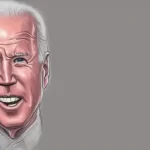You Might Find This Intriguing As Well:
Cornel West Takes on the Two-Party System: Can He Overcome the Odds?
Cornel West’s decision to run for president as an independent candidate under the Green Party has sparked intrigue and debate among political observers. Initially, West’s reputation as an influential philosopher and staunch advocate for justice makes him a compelling candidate who brings fresh ideas to the table. His commitment to progressive principles, as demonstrated through his endorsement of Bernie Sanders, resonates with many who believe in the need for systemic change. Moreover, his candidacy helps draw attention to alternative policies that may have been overlooked within the traditional party system.
However, there are legitimate concerns regarding the viability of West’s independent candidacy in a political landscape heavily dominated by the Democratic and Republican parties. The two major parties hold significant advantages, including access to media coverage, established fundraising networks, and a well-oiled party machinery. Independent candidates often struggle to gain the necessary traction and resources to compete with these established entities. Furthermore, the US presidency’s electoral process, which heavily values party affiliation and the accumulation of electoral votes, historically poses a considerable barrier for independent candidates.
Supporters argue that West’s candidacy is a necessary disruption to the status quo, highlighting the need for more diverse voices and perspectives in American politics. They believe that his integrity, intellect, and commitment to progressive values make him an exceptional candidate who can energize and unite marginalized communities. West’s campaign can serve as a platform to elevate pressing issues such as racial justice, income inequality, and the urgency of climate change that may not receive adequate attention within mainstream party politics.
Opponents, however, express skepticism regarding the prospects of a successful independent candidacy in a highly partisan political environment. They argue that West’s decision to run outside of the traditional party structure undermines the potential for real change. They believe that focusing efforts and resources on supporting progressive candidates within the Democratic Party, like Bernie Sanders, would be a more strategic approach. By working within existing party structures, supporters argue, progressive ideals can be better advanced and implemented, minimizing the risk of splitting votes and inadvertently aiding more conservative candidates.
Ultimately, Cornel West’s independent presidential candidacy presents both opportunities and challenges. It forces us to question the entrenched two-party system and consider alternative political pathways. While it is unclear whether West can overcome the barriers and secure electoral victories, his campaign undoubtedly contributes to the broader conversation about the need for systemic change in American politics. Only time will tell if his bold decision can reshape the political landscape or if it will be yet another noteworthy but ultimately unsuccessful effort to challenge the status quo.
Here's A Video We Thought You Might Also Like:
Author Profile

- As a seasoned reporter, I strive to provide accurate and unbiased news coverage, with a particular focus on political affairs. I believe in the power of journalism to inform and inspire change in the political landscape.
Latest entries
 Breaking News2023.12.19Lawmakers Clash Over Biden Administration’s Environmental Actions – Supreme Court to Weigh In!
Breaking News2023.12.19Lawmakers Clash Over Biden Administration’s Environmental Actions – Supreme Court to Weigh In! Breaking News2023.12.18Eye-opening New Poll Reveals the Unbelievable Decline in Biden’s Approval Rating!
Breaking News2023.12.18Eye-opening New Poll Reveals the Unbelievable Decline in Biden’s Approval Rating! Breaking News2023.12.18Sandra Day O’Connor’s Retirement Announcement Shocks the Nation
Breaking News2023.12.18Sandra Day O’Connor’s Retirement Announcement Shocks the Nation Breaking News2023.12.18Overwhelming Revelation Artificial Intelligence Arms Race Sparks Global Concerns!
Breaking News2023.12.18Overwhelming Revelation Artificial Intelligence Arms Race Sparks Global Concerns!






